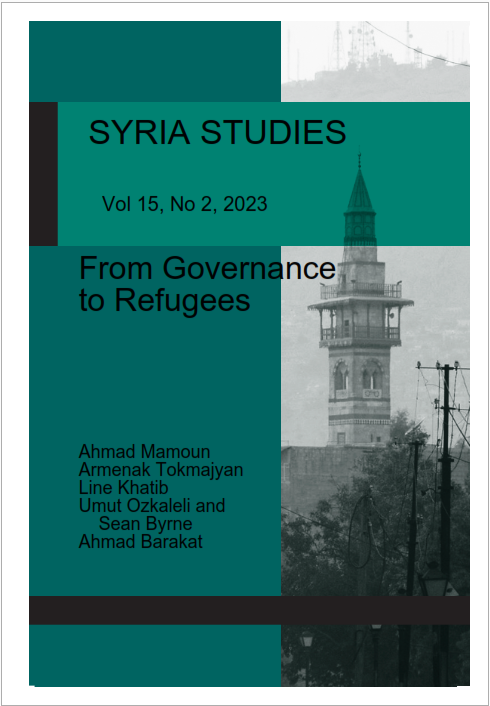The Conflict between Political Factions of the Syrian Military Establishment, 1954-1958 Coups and Political Pluralism
Main Article Content
Abstract
This study criticizes the general frameworkthat has governed the broader current of the researchers in civil-military relations, their method of thinking about the military institution since the inception of the field, the paper presents the theoretical and practical gaps in that literature, in particular the researchers of "Coup-Proofing". The study shows the weakness of the explanatory capabilities of the field in extrapolating and analyzing the historical era that the research seeks to reveal its theoretical and historical ambiguities, which is the phase of political pluralism in Syria between 1954-1958, which the researchers viewed as a democratic phase. The paper examines why did the army step down from the presidency and allowed civil forces to engage in political action at the time, in spite of that phase is in the midst of two series of coups. The paper is based on a basic premise that the army as a military institution do represent wings, sectors, units, brigades, and power relations, before it is an expression of any other social segments, which is in contrast to what the literature says in examining the sociological backgrounds of the officers.
Keywords: Syria, Military coups, Coup-Proofing, Officers, Democracy
Article Details

This work is licensed under a Creative Commons Attribution 4.0 International License.
Authors who publish with this journal agree to the following terms:- Authors retain copyright and grant the journal right of first publication with the work simultaneously licensed under a Creative Commons Attribution License that allows others to share the work with an acknowledgement of the work's authorship and initial publication in this journal.
- Authors are able to enter into separate, additional contractual arrangements for the non-exclusive distribution of the journal's published version of the work (e.g., post it to an institutional repository or publish it in a book), with an acknowledgement of its initial publication in this journal.
- Authors are permitted and encouraged to post their work online (e.g., in institutional repositories or on their website) prior to and during the submission process, as it can lead to productive exchanges, as well as earlier and greater citation of published work (See The Effect of Open Access).
